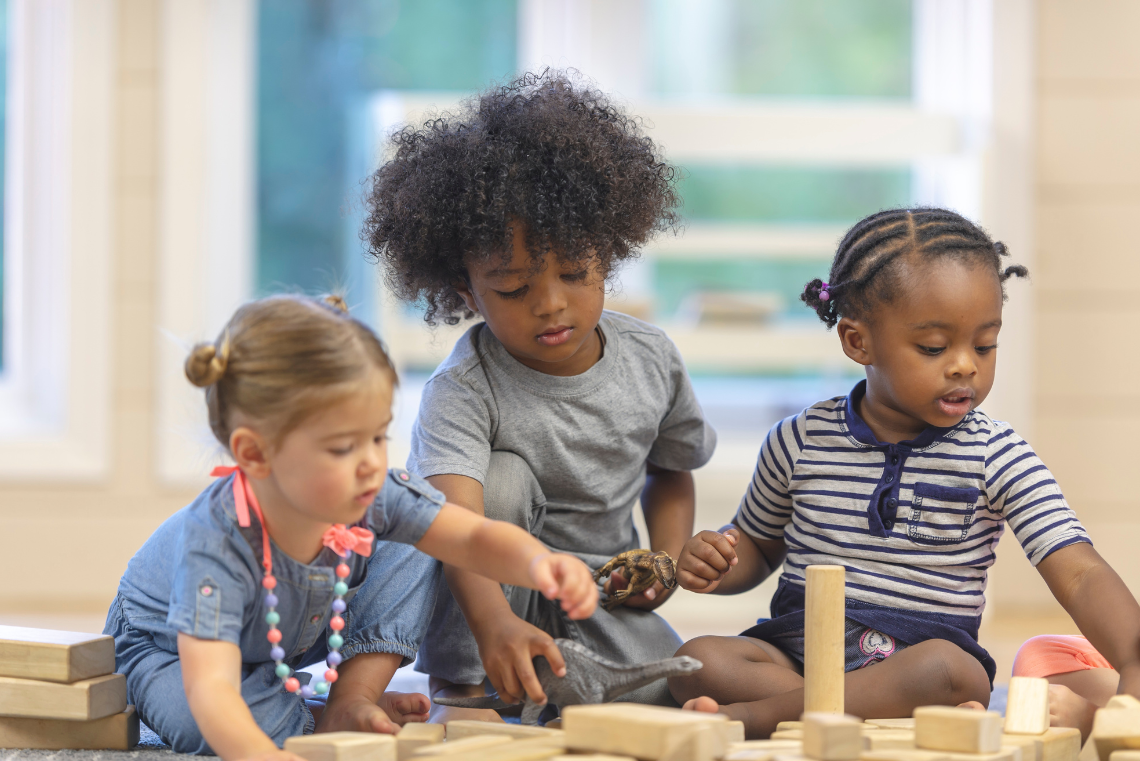
Why baby learning games are meant to be played over and over (and over) again.
There’s only so many times you can play Patty Cake or read Goodnight Moon. No matter how many toys or books you have, sometimes your baby just wants to do the same thing again and again. Here’s why you should let them.
Why is my baby fixated on one activity?
Babies like repetition for a reason. As a child’s brain grows, synapses (i.e., neural connections) start to form. The more these synapses are activated, the more they become hardwired. The connections that are used repeatedly will stick around while those that are not are “pruned.” Through this process, slowly but surely a child starts to learn and grow. So when your baby wants to play the same game for the hundredth time, remember that it’s good for their development!
Repeating activities also makes a baby feel secure. They like being able to predict what happens next. The same thing is true for us as adults (e.g., why we watch the same TV shows over and over again). Knowing the next step in a game or story is exciting for children and makes them feel like they understand the world around them.Powered by Rock Convert
Other playtime challenges:
- Maybe repetition isn’t your baby’s thing. Maybe, instead, your child moves quickly between activities. He may bounce a ball, play the xylophone, and brush a doll’s hair–all within a matter of minutes. You may be tempted to focus your child’s attention on one activity, but your child is just absorbing and exploring the world. Let them!
- Is your baby a little… bossy? It’s common for children to tell their parents what to do during playtime. Try not to take it as a sign of disrespect. When children take the lead, they’re building confidence and cultivating self-directed learning, leadership, and decision-making skills. Your child shouldn’t be mean or rude but allowing her to direct play in a respectful way is good for her cognitive development. Try asking your daughter “What do I do next?” and see how she responds!
Things for parents to keep in mind with baby games:
- During a baby’s first year of life, baby games look a little different. It’s more about back-and-forth interactions, like Peek-A-Boo, than about toys. If you’d like to introduce your child to play with toys, try moving bright objects side-to-side, shaking a rattle, or exploring new textures.
- After about a year, you can start introducing new toys and baby games. Building blocks, light-up toys, and instruments all help children stimulate new skills and cognitive abilities. If you’d rather put the toys aside, try a game of make-believe!
- If a child is overstimulated during play, they will likely close their eyes, start crying, hiccup, turn their head away, or become fussy. If this happens, pause for a few minutes and wait for them to settle down, re-engage, or make eye contact.
More information on baby games to play with your little one:
- Baby games: The 6 stages of social play
- Ideas and games that foster and nurture my child’s imagination
- It’s all fun and games
References:
- The power of repetition
- Playing with Baby Is Fun (Until It’s Boring)
- How babies learn through play (video)
Reference: https://blog.kinedu.com/are-your-baby-games-becoming-repetitive/



